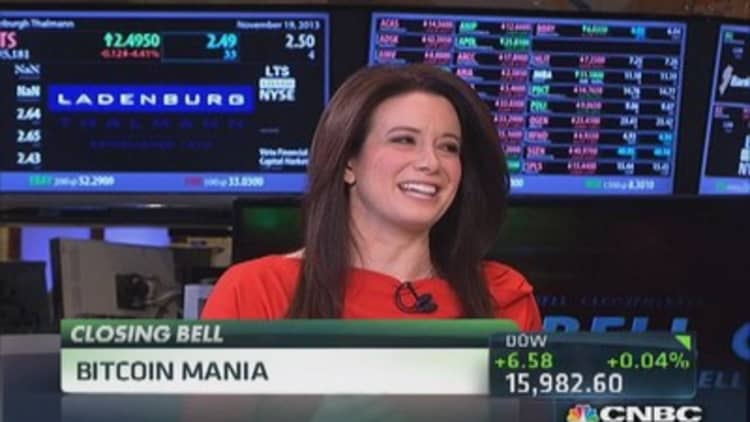The University of Nicosia in struggling euro zone nation Cyprus is to become the first university in the world to accept the virtual currency bitcoin, according to a press release on its website.
The educational facility - the largest private university in Cyprus - will also offer a Master's degree in digital currency and plans to develop Cyprus into a hub for bitcoin trading, processing and banking.
"Digital currency will create more efficient services and will serve as a mechanism for spreading financial services to under-banked regions of the world," Christos Vlachos, the university's chief financial officer said in the press release on Thursday.
(Read More: US fights losing battle for bitcoin riches)
"Our world class business, accounting and computer science departments have partnered to create an interdisciplinary major to prepare people for these revolutionary changes. In this light, we consider it appropriate that we implement digital currency as a method of payment across all our institutions in all cities and countries of our operations."
Bitcoin payment of tuition and other fees will be allowed, it said, with the degree course expected to help financial services and business professionals, entrepreneurs, government officials and public administrators better understand the technical underpinnings of digital currency.

"What we aim to explore in this program is the likely development pathway of digital currency and give our students insights that they can bring to bear in their professional careers." Andreas Polemitis, the senior vice rector said in the same press release.
(Read More: Cyprus to lift most currency controls by spring 2014)
Bitcoin is a virtual currency that allows users to exchange online credits for goods and services. While there is no central bank that issues them, bitcoins can be created online by using a computer to complete difficult tasks, a process known as mining. Some 11.75 million bitcoins are believed to be in circulation, with a cap of 21 million—meaning no more bitcoins can be created after that point. On Thursday morning one bitcoin was worth just under $677, according to major exchange Mt. Gox.
Recent highs are believed to have been due to surging interest from China as well as bullish comments made at two U.S. Senate hearings this week on virtual currencies. Bitcoin watchers have been here before, however.
(Read More: As bitcoin skyrockets, is a bubble at hand?)
The price spiked from close to zero to $260 in April just as a financial crisis flared in Cyprus. The Mediterranean island became the fifth country in the euro zone to seek an international financial lifeline and introduced emergency controls on the movement of capital, such as money transfers or cash withdrawals.
As bitcoin allows for quick, easy and anonymous transfers of payment many believe that it was only a matter of time until the country embraced the cryptocurrency and saw it as a key reason for its price rise. Max Keiser, a broadcaster and advocate of the currency told CNBC that the financial woes in Cyprus had changed the way Cypriot people view bitcoin.
"No one should be surprised that educators and entrepreneurs across the country have quickly realized that bitcoin offers a way out of the horrid central bank cesspool of fiat nonsense like euros," he told CNBC via email.
By CNBC.com's Matt Clinch. Follow him on Twitter @mattclinch81


